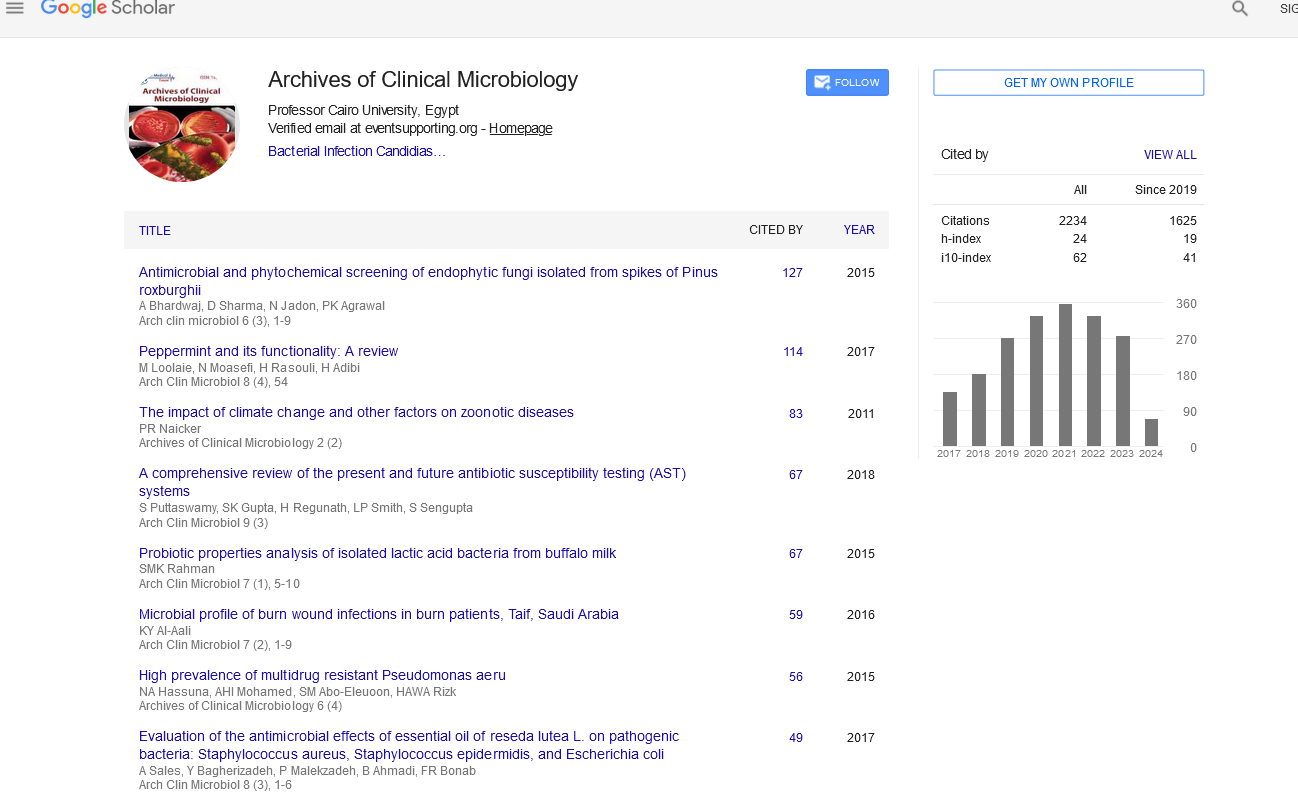Muhammad Ali Syed1* and Noureen Fatima Bana2
1Department of Microbiology, University of Haripur, Pakistan
2Bioethics Unit Alumni, Aga Khan University, Karachi, Pakistan
- Corresponding Author:
- Dr. Muhammad Ali Syed, MSc., PhD
Department of Microbiology, University of Haripur
Hattar Road, Haripur, Pakistan
E.mail: syedali@uoh.edu.pk
Phone: +92-995615780
Editorial
Infectious diseases have been a major human enemy in the course of history. Advent of vaccines, antibiotics, antimicrobial agents and improved sanitary and hygienic conditions has contributed in the human fight against microbes which produce contagious disease processes. Nonetheless, this great human battle seems far from winning. Western countries have already been successful in reducing the morbidity and mortality rates of the infectious disease in their countries due to several strong physical, social, public health and political sectors that work hand in hand to timely report and combat spread of contagious diseases. However, there could not be a state of complete control despite massive capital investment, human will and determination as well as dedicated research and innovation.
The situation is worse in the developing countries that are already suffering from poverty, hunger, lack of resources, infrastructure, political stability and will. One may witness several such infectious diseases in these parts of the world that hardly exist in today’s industrialized countries. In recent decades, trend of greatest burden of infectious diseases is observed in remote regions of developing countries. However, most of the research and innovation on the public health issue of infectious disease and control measures are being carried out at the institutes situated overseas.
Developing countries offer great potential for infectious disease research for exploring epidemiology, biology, cure and prevention. For example, molecular epidemiologists may be interested in source tracking and genetic finger printing of infectious agents, whereas vaccinologists in study of vaccine efficacy in this area of the world. One may also consider studying the underlying mechanism of antibiotic resistance in bacteria or emergence of highly virulent strains of certain bacterial, viral or fungal species. Understandably, it is not feasible for most of the developing economies to invest much in sectors such as drug discovery and vaccine development. Nevertheless, huge opportunities still exist in this area for dedicated scientists and young researchers.
Infectious disease research equally faces almost the same challenges in all countries of the developing world. Lack of financial resources required for sophisticated equipment and reagents, expertise and training centers are challenges that every scientist faces while doing their work. It is worth mentioning that social, cultural and political constraints are equally important factors. Lack of political will and corruption has a major obstacle in fostering research activities here.
We are of the mind that young researchers may bring about changes by exploiting the rapid global changes offering huge opportunities of communication in today’s globalizations age. Collaboration between laboratories has been conventional in the developed world. One may benefit largely by networking nationally and internationally for joint research projects. Societal and cultural constraints may be overcome by the young scientists who are more open, tolerant, exposed and willing to explore. Above all, key responsibility is on the shoulders of the local governments to equip their scientists with technology, expertise, working environment and required resources for innovative research. International organizations and funding bodies have been generous in their financial and technical support, but the real weakness lies at our own end.
Scientists of the developing world often find it difficult to get a place for their research work in the quality research journals. One of the many reasons behind it is poor study design, writing and presentation skills and ethical issues. One may improve these all with little training without the need of massive investment.
6497





